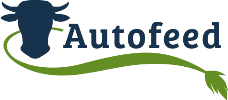AUTOFEED Project
Feeding automation for cattle farms in Lombardy

The project “Feeding automation for cattle farms in Lombardy – AUTOFEED)”, funded by the Lombardy Region in the framework of SUBMEASURE 16.1 – “Support for the establishment and for the management of EIP Operative Group in the topic of agriculture’s productivity and sustainability” of the Rural Development Program 2014-2020, has started on September 1st, 2019.
The Treviglio’s Office of CREA – Research Centre for Engineering and Agro-Food Processing is the project leader, and the CRPA Studies and Research Foundation is responsible for studies on animal housing and the transfer and the disclosure of the results. The partnership includes five dairy and beef cattle farms, where different automatic device for feeding the animals will be installed:
- Agricultural Society Cervi Ciboldi Ernesto, Maria Cecilia e Maria Paola s.s., (CR)
- Agricultural Society Fattoria Ginestra di Bettoni Adonis e Angelo s.s., (CO)
- Agricultural Society Della Bona Faustino s.s. (BS)
- Agricultural Society Pieve di Nodari Gualtiero e C. s.s. (BS)
- Agricultural Society Giovannini Galdino e Pecchini Drusilla (MN)
The AUTOFEED’s Project, has various collaborations with external institutions and firms like:
- Università degli Studi di Milano, Dipartimento di Scienze Agrarie e Ambientali e Dipartimento di Scienze Veterinarie per la Salute, la Produzione Animale e la Sicurezza Alimentare.
- Lely Center (MN)
- Panoramic (MI)
Acronym: AUTOFEED
Thematic: Robotica-automazione
Focus Area: 2a) Incoraggiare la ristrutturazione delle aziende agricole con problemi strutturali considerevoli
Leader: CREA – Consiglio per la ricerca in agricoltura e l’analisi dell’economia agraria, Centro di ricerca Ingegneria e Trasformazioni agroalimentari, sede di Treviglio.
Period: 2019 – 2022
Duration: 36 mesi
Partner: 7
Fund: Zootecnia – bovini/bufalini
Localizzazione: ITC47 – Brescia | ITC4A – Cremona | ITC4B – Mantova
Total Cost: €716.945,51
Main funding source: Rural development program
The project activities will be divided into three phases:
Preliminary fact-finding survey: analysis of the market, the types of AFS available, the plant solutions adopted and the opinion of farmers on AFS.
Definition of housing models with AFS and their comparison with those based on conventional unifeed wagon.
Monitoring and analysis of companies already equipped with AFS to highlight the economic aspects, production performance and animal welfare that can be reached with this technology.
Feasibility study in companies not equipped with AFS to define the technical and economic design elements. Comparison of ex-ante and ex-post situations.
Public initiatives:



